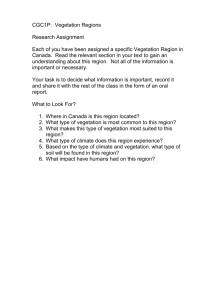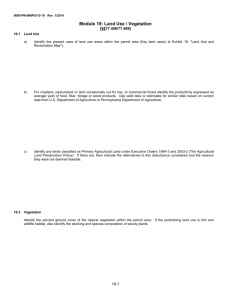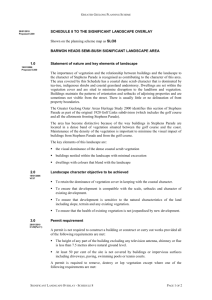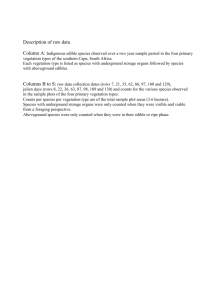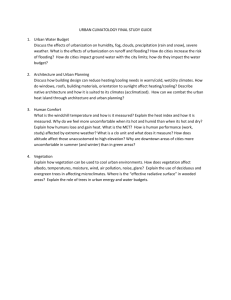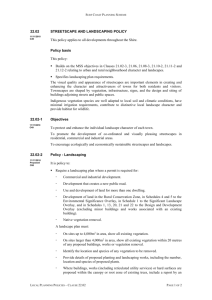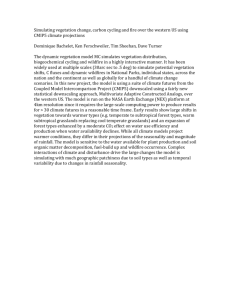Greater Geelong C300 42_03s09_ggee track changes Exhibiton
advertisement
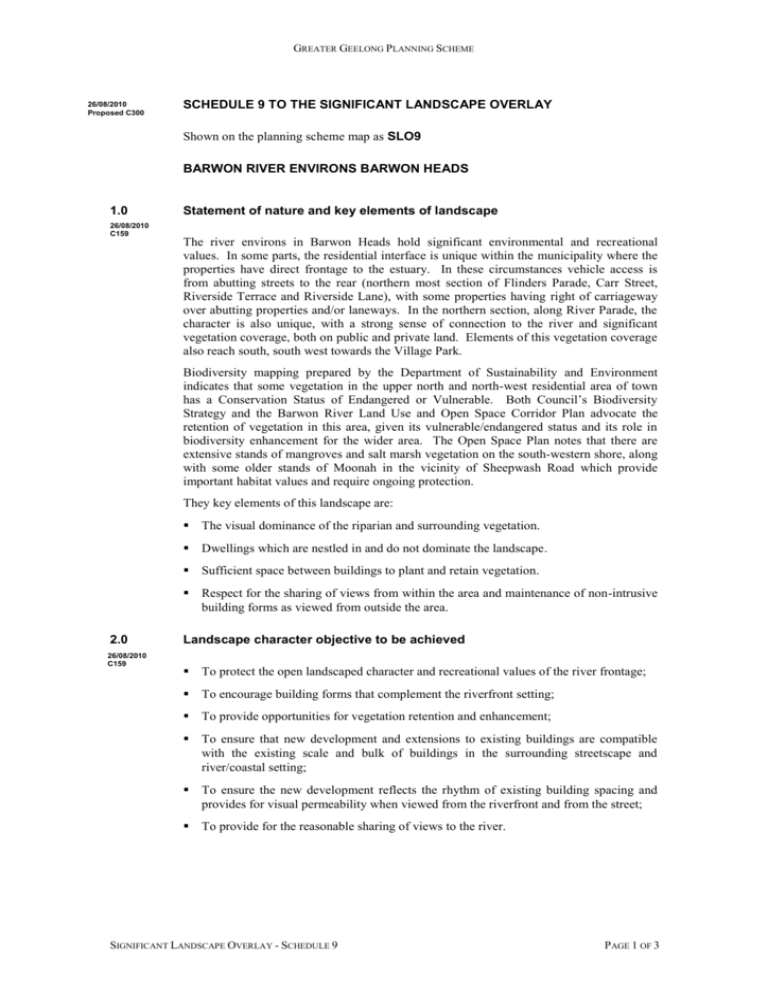
GREATER GEELONG PLANNING SCHEME 26/08/2010 Proposed C300 SCHEDULE 9 TO THE SIGNIFICANT LANDSCAPE OVERLAY Shown on the planning scheme map as SLO9 BARWON RIVER ENVIRONS BARWON HEADS 1.0 26/08/2010 C159 Statement of nature and key elements of landscape The river environs in Barwon Heads hold significant environmental and recreational values. In some parts, the residential interface is unique within the municipality where the properties have direct frontage to the estuary. In these circumstances vehicle access is from abutting streets to the rear (northern most section of Flinders Parade, Carr Street, Riverside Terrace and Riverside Lane), with some properties having right of carriageway over abutting properties and/or laneways. In the northern section, along River Parade, the character is also unique, with a strong sense of connection to the river and significant vegetation coverage, both on public and private land. Elements of this vegetation coverage also reach south, south west towards the Village Park. Biodiversity mapping prepared by the Department of Sustainability and Environment indicates that some vegetation in the upper north and north-west residential area of town has a Conservation Status of Endangered or Vulnerable. Both Council’s Biodiversity Strategy and the Barwon River Land Use and Open Space Corridor Plan advocate the retention of vegetation in this area, given its vulnerable/endangered status and its role in biodiversity enhancement for the wider area. The Open Space Plan notes that there are extensive stands of mangroves and salt marsh vegetation on the south-western shore, along with some older stands of Moonah in the vicinity of Sheepwash Road which provide important habitat values and require ongoing protection. They key elements of this landscape are: The visual dominance of the riparian and surrounding vegetation. Dwellings which are nestled in and do not dominate the landscape. Sufficient space between buildings to plant and retain vegetation. Respect for the sharing of views from within the area and maintenance of non-intrusive building forms as viewed from outside the area. 2.0 26/08/2010 C159 Landscape character objective to be achieved To protect the open landscaped character and recreational values of the river frontage; To encourage building forms that complement the riverfront setting; To provide opportunities for vegetation retention and enhancement; To ensure that new development and extensions to existing buildings are compatible with the existing scale and bulk of buildings in the surrounding streetscape and river/coastal setting; To ensure the new development reflects the rhythm of existing building spacing and provides for visual permeability when viewed from the riverfront and from the street; To provide for the reasonable sharing of views to the river. SIGNIFICANT LANDSCAPE OVERLAY - SCHEDULE 9 PAGE 1 OF 3 GREATER GEELONG PLANNING SCHEME 3.0 26/08/2010 C159 Permit requirement A permit is not required to construct a building or construct or carry out works provided all of the following requirements are met: The height of any part of the building to be constructed or extension to an existing building, excluding any television antenna, chimney or flue, is less than 7.5 metres in height above natural ground level; One side boundary is clear of buildings for at least 2.0 metres except in the situation where a dwelling exists on a site and the dwelling extension or building maintains or increases the established side setbacks. This provision does not apply where an existing building is rebuilt; The buildings and works are setback at least 5 metres from the property boundary adjacent to the river. A planning permit is required to remove, destroy or lop vegetation except where one of the following requirements are met; The vegetation is listed as an environmental weed within the incorporated document Environmental Weeds, City of Greater Geelong, September 2008; The vegetation is dead; The vegetation is less than 3 metres in height and is not shown on an approved landscape plan or site plan specifying its retention. This exemption does not apply to Moonah (Melaleuca lanceolata) and Coast Beard-heath (Leucopogon parviflorus); The vegetation has single trunk circumference of less than 0.5 metres measured 1 metre above the ground and is not shown on an approved landscape plan or site plan specifying its retention. This exemption does not apply to Moonah (Melaleuca lanceolata) and Coast Beard-heath (Leucopogon parviflorus). A landscaping plan should be submitted with an application for buildings and works, or to remove, destroy or lop vegetation and should incorporate the use of local indigenous species. 4.0 26/08/2010 Proposed C300 Decision guidelines Before deciding upon an application, the responsible authority must consider: The need to ensure the design and siting of buildings exceeding 7.5 metres in height will not dominate the riverfront and the streetscape, and will not impact on long distance views. Dwellings which are proposed to exceed over 7.5 metres must respond to the flat topography and naturally occurring low vegetation types that contribute to broad and expansive view sheds; The need to ensure the design and siting of buildings exceeding 7.5 metres in height will allow for the reasonable sharing of views having regard to the extent of available views and the significance of the views from the properties affected; The impact of the riverfront, streetscape and vegetation character, the rhythm of existing building spacing and the visual permeability of the existing built form when viewed from the riverfront and the street; Whether sufficient use has been made of indigenous planting to break up the views of the built form, retain adequate sight lines for safety and to soften and improve the interface treatment to the waterway; and SIGNIFICANT LANDSCAPE OVERLAY - SCHEDULE 9 PAGE 2 OF 3 GREATER GEELONG PLANNING SCHEME Whether proposed building set backs from a property line that directly adjoins the waterway corridor allows for substantial landscaping between buildings and the waterway corridor to soften the urban character. Buildings and works should be set back to maintain the open landscape along the waterway. SIGNIFICANT LANDSCAPE OVERLAY - SCHEDULE 9 PAGE 3 OF 3
